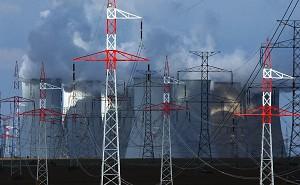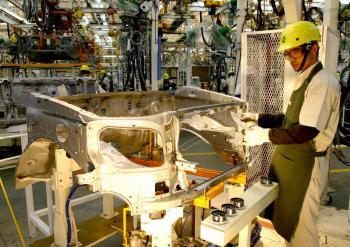This summer will see the largest ever demand for electricity in China. Since 2003, China has suffered from severe coal and electricity shortages. The energy crisis has escalated due to the sustained rise in oil prices and is threatening China’s economic growth.
Since becoming the world’s second-largest oil consumer, China’s leaders have been constantly searching for new energy supplies. On June 30, China’s President, Hu Jintao, traveled to Russia and Kazakhstan, close on the heels of his most recent trip to Russia in May.
The Price of Oil Reaches another High
The growth of global oil demand has out-stripped supply despite full-capacity production from the Organization of the Petroleum Exporting Countries (OPEC). To make matters worse, political instability threatens oil output. Two days after the conservative party won the June 25 presidential election in Iran, oil reached a new record price of $61 per barrel
An annual report released on June 27 by the Bank for International Settlement (BIS) headquartered in Basel, Switzerland, states: “Oil prices, which rose further in Spring 2005, may well remain high for a prolonged period of time. The increase in long-term oil futures prices is consistent with the view that there has been a major upward shift in the equilibrium price of oil. Further rises- if they materialize- may have more severe consequences than currently anticipated.”
The International Monetary Fund (IMF) estimates that the rate of global economic growth will fall 0.3 percent if oil prices rise a further $5 and remain there for a year. Energy-intensive industries, particularly transportation and manufacturing, will be the first to be affected by soaring oil prices.
China’s Energy Crisis and Its Impact on the Economy
At a “collective study session” held for the CCP's Politburo on June 27, Hu Jintao said that energy is a paramount strategic issue in China’s socialist, “market-oriented” economy and social management systems, and that China would further study the trend of international energy and resources together with the country’s energy strategic solutions.
Before his visit to Russia, Hu Jintao announced plans to build a pipeline to Northern China in order to access Siberian oil.
Beijing has been competing with Japan to obtain Moscow's permission for two alternative pipeline proposals. The Japanese intend to build a pipeline from Siberia to the Pacific Ocean near Russia.
Electricity Shortage Continues
Twenty five of China’s provinces and autonomous regions are running short of electricity. One major city, Guangzhou, often well known for its abundance of electricity, experienced a blackout after the Chinese New Year. The shortage of electricity plus the increase in electricity prices in May represents double pressure for foreign investors.
Ningbo city in Zhejiang province fell short of its electricity supply targets by 30 percent this summer. In Beijing, constant high temperatures forced the Beijing municipal government to halt production in 6,000 factories for one week. 5,800 factories have been encouraged to shift production to evenings and weekends in order to avoid operating during the period of peak electricity demand.
Over the past three years, the shortage of electricity has overstressed China’s coal mines that have become the highest safety risk environment to work in: at least 6,000 miners died in China's mines last year.
Coal accounts for approximately 65 percent of China’s diverse energy resources. China’s coal consumption is the highest in the world, representing nearly one third of all global coal consumption.
Urgent Need for Oil
China's biggest offshore oil and gas producer, CNOOC, of which the Chinese government owns 70 percent, has opened a bidding war for Unocal, the ninth-largest US oil firm. The CNOOC claim that by controlling Unocal it will allow them to lower production costs, access advanced technologies and eventually expand its global market.
The potential takeover has ignited concerns in the United States Congress and Senate. Some members are afraid that selling Unocal will reinforce China’s strategic petroleum reserve. They are urging President Bush to veto this deal for the sake of national security.
High Energy Consumption
China has a high per capita consumption of energy. The manufacturing industry’s energy consumption per 10,000 yuan ($1,208) of GDP is about 3 or 4 times the global average, 11.5 times that of Japan, 4.3 times that of the United States and 7.7 times that of Germany and France. With the development of the heavy chemical industry, it is expected to increase further.



